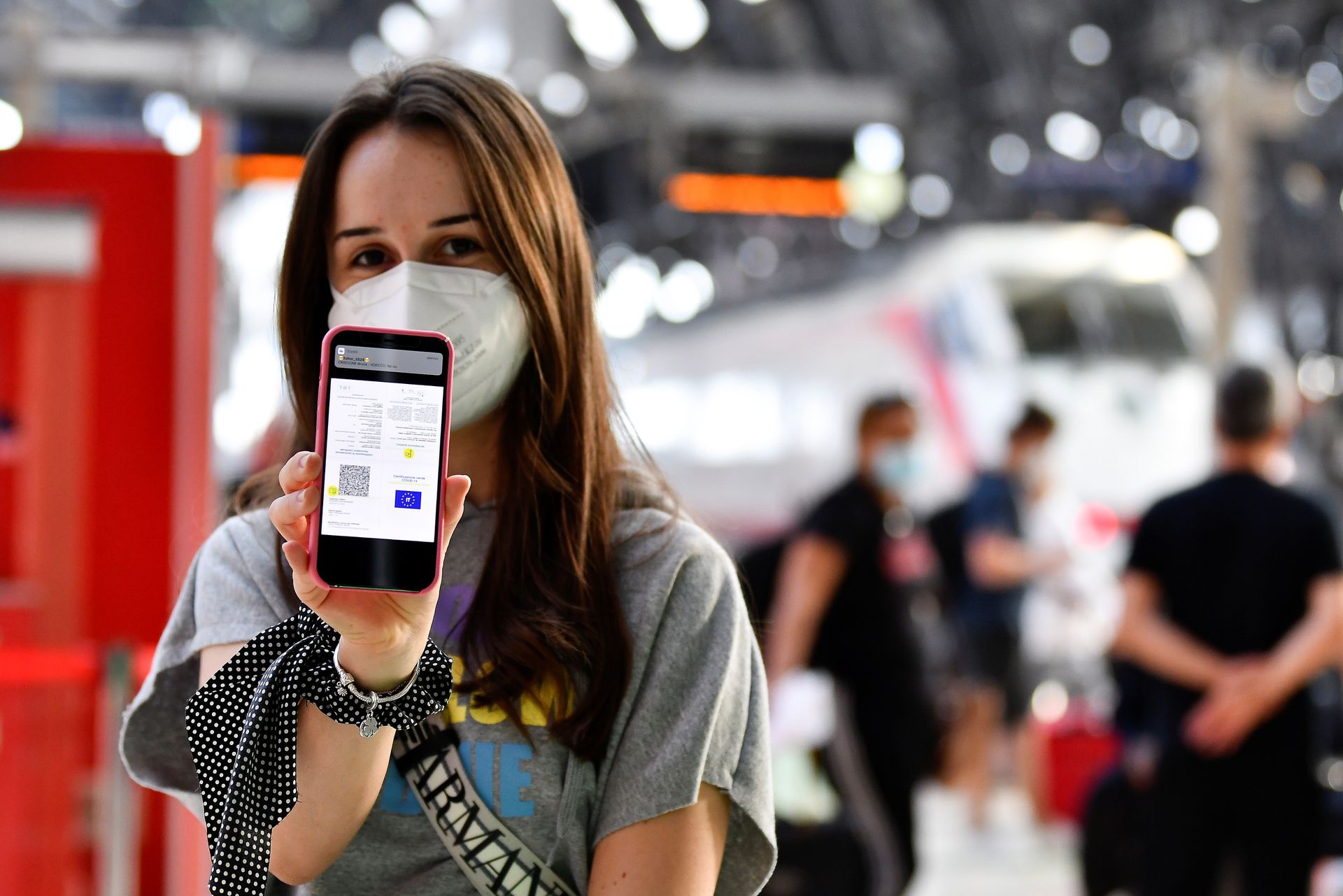Italy’s restrictions centred around the Green Pass will be tightened significantly from Monday 6 December, as part of the government’s plans to stem the spread of covid-19 and to boost its vaccination drive.
From Monday, those without such a certificate will either need to get vaccinated to receive their ‘super green pass’, or lose access to the venues that will require them. These include:
Indoor seating at bars and restaurants
Tourist sites, museums, and art exhibitions
Cinemas, theaters, concerts
Clubs and discos
Sports matches
As under the current rules, Italy’s ‘super green pass’ requirement will apply to everyone in the country, including non-Italian tourists.
Foreign tourists with vaccination cards or certificates from Canada, Israel, Japan, the United Kingdom (including England, Scotland, Wales, Northern Ireland, Gibraltar, the Isle of Man, the Channel Islands and British military bases on Cyprus), and the United States of America will be able to continue using these in place of the ‘super green pass’, provided they show the holder has completed a full initial vaccination cycle for at least 14 days.
From Monday, places that did not previously require any kind of green pass will be added to the list of venues that do need one; however, for all these places a basic green pass is valid – meaning they can be accessed by unvaccinated people who have recently received a negative Covid test result.
These are:
- Hotels
- Changing rooms in sports facilities
- Local public transport services.
A basic green pass has been required to access long-distance domestic public transport for several months now; from Monday, this will be extended to local public transport, including buses, trains, and metro carriages.
Workplaces will continue to require a green pass; however, in this case a basic green pass is also valid – meaning unvaccinated people can continue to go to work provided they have a recent negative Covid test result.
When the new regulations comes into force, those who are not vaccinated will also no longer be able to access indoor restaurants, bars or sports stadiums.
Another important change will see the ‘basic’ Green Pass (obtainable by a negative covid test) required for hotels as well as on local public transport and regional rail travel.
The only aspect that will not change in relation to the Green Pass is that unvaccinated workers may still access their workplace using the current system of getting tested every couple of days.
Central to the new rules is the so-called Super Green Pass, a reinforced version of the Green Pass certificate that proves the holder has been vaccinated against covid, recovered within the last six months or tested negative in the last 48 hours.
Under the existing system, the Green Pass is required for a range of social, cultural and sporting activities in Italy, from dining indoors in restaurants to long-distance travel journeys. It is also mandatory in the workplace.
The Super Green Pass cannot be obtained via a negative test result, meaning that the unvaccinated will not be able to access indoor restaurants, bars, cinemas, theatres, concerts, night clubs or sports stadiums after 6 December.
The measures – which prime minister Mario Draghi says are needed to “preserve normality” and “give certainty” to the tourist holiday season – will remain in place until 15 January, with the option of being extended further into 2022.
The government has also reduced the validity of the Green Pass from 12 to nine months.
In addition, the “basic” Green Pass will become mandatory for hotels, changing rooms in sporting facilities, on regional rail transport and local public transport including subways, buses and trams.
The Green Pass is required for museums too.
The only aspect that will not change in relation to the Green Pass is that unvaccinated workers may still access their workplace using the current system of getting tested every couple of days.
The move comes as mask-wearing becomes mandatory outdoors in crowded shopping districts in many Italian cities whose police are set to carry out random Green Pass checks on public transport and restaurants over the Christmas season.
With almost 85 per cent of the population over the age of 12 now double-vaccinated, the government continues to clamp down on the No Vax and No Green Pass movements, recently banning their protests from city centres across Italy.
Unrelated to the new decree, Monday will also see the northern region of Trentino Alto Adige join Friuli Venezia Giulia in the more-restricted ‘yellow’ zone, as both regions have exceeded the government’s hospital occupancy and Covid infection rate thresholds.
The rest of the country remains for now in the least-restricted ‘white’ zone, although several regions are expected to join Trentino Alto Adige and Friuli Venezia Giulia in the yellow zone in the coming weeks.
Residents of yellow zones are required to wear masks outdoors as well as in indoor public spaces.
Until now a transition to the yellow zone has entailed the imposition of additional restrictions, such as limiting the number of diners at restaurants to four per table.
The new ‘super green pass’, however, will allow holders to continue accessing venues and facilities in yellow and more-restricted ‘orange’ zones as normal, meaning the limitations on vaccinated and Covid-recovered individuals will be minimal.
The new rules will remain in place until at least January 15th.

